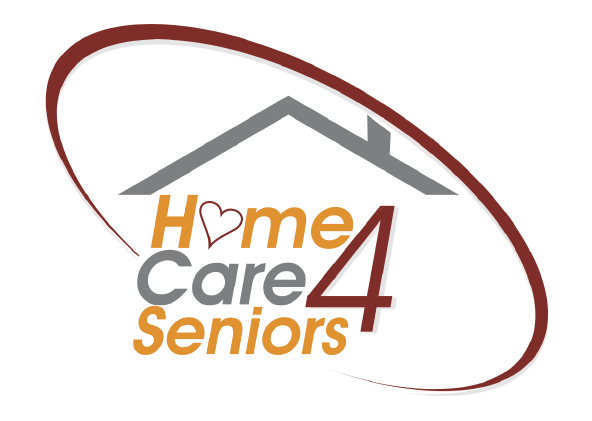Early Signs of Dementia or Just Aging?
- HC4S

- Feb 6, 2021
- 4 min read
Updated: Jan 14, 2022
Alzheimer Society reported almost 40% of people over the age of 65 experience some form of memory loss. Centers for Disease Control and Prevention also conducted a study that revealed 1 in 8 Americans over the age of 60 have experienced worsening memory in the past year.
Furthermore, almost 13% of people over the age of 60 reported signs of significant confusion or memory loss that interfered with work, living, and/or social activities of the senior.
As such, it's common to think that memory loss is just another sign of your parents getting older. However, don't be mistaken as many early signs of dementia are often subtle and quite similar to the signs of normal aging. It's important, to recognize the differences between "typical aging" and early signs of dementia to ensure optimal living for your aging parent moving forward.

Normal vs. Concerning Behaviors
Occasionally vs. Frequent: Forgetting things, conversations, and events
It's exceptionally common to forget things, conversations, and events once in a while. After all, everyone does it, regardless of their age or mental health.
However, frequent memory loss about things, conversations and events, especially ones that occurred recently, could be an early sign of dementia.
If you notice your loved one continuously forgetting things they should know or that have occurred within the past year, it's important to have this looked into.

Being unable to identify or recognize acquaintances vs. family members
Names aren't everyone's métier. It's common for anyone - especially seniors - to forget the names of acquaintances, such as the neighbors down the road or the nurse at the doctor's office. So, this isn't something to be too concerned about.
However, if your loved one is unable to recognize the faces of people they know or the names of family members, it could be an indicator of dementia development. It's recommended to take note of how often this is happening and the name they're forgetting. Your parent forgetting your name is a little more drastic than them forgetting their 17th great-grandchild's name who they see once a year. So, keep a diary of their behavior to help the doctors determine whether dementia is of concern.
Stumbling over the right words vs. frequent pauses and substitutions for words
After various decades on this earth, seniors have a plethora of words in their vocabulary, and it's common for them to stumble over finding the right ones. However, this becomes a possible sign of early dementia when a senior is regularly forgetting words and/or is frequently pausing or substituting wrong words in sentences.
For example, if your loved one is asking for the orange juice when they're pointing to the milk or calling the dog a hamster - things they should know regardless of their age - it's something that should be addressed.
Being worried about their own memory vs. being unaware of their own memory
Most elderly people are aware of their own memory loss. Many even joke about it, accepting that it's typically nothing more than normal aging.
The real concerns come when the entire family is starting to notice extreme memory loss but the senior is completely unaware and possibly in complete denial that their memory is a problem.
So, if your aging mom or dad is still cracking jokes about their lack of memory, they're likely not experiencing dementia.
Sign of normal aging
To provide you with more information on normal signs of aging, here are some common things you may experience with your aging parent.
Takes longer to process information
Less physical and mental flexibility
Slower body and brain, with their intelligence remaining stable
Difficulty remembering names and/or places
Occasionally losing items
Occasionally forgetting and/or becoming confused with which words to use
Signs of Early Dementia
Generally speaking, if your aging parent is only showing one sign of early dementia, it doesn't necessarily mean a diagnosis will be made. However, you should keep your eyes open for other signs and symptoms, which are:
Frequent memory loss on recent events, occasions, conversations, and things
Memory loss that affects their daily life
Decreased intelligence (forgetting how to read, write, speak, etc.)
Difficulty understanding language (reading, writing, speaking, etc.), symbols, and maps
Repetitive questions
Increased confusion
Erratic moods
Being unfamiliar with familiar places and faces
Difficulty focuses on a task and/or problem-solving
Change in hygiene and/or eating habits
Repeat falls, injuries, or loss of balance
Odd behavior
Increased apathy
Failing sense of direction
Dementia isn't easy to detect in the early stages. Symptoms often walk the line between signs of "normal aging" and concerning signs of aging, which can make it difficult to decide what the proper course of action should be. These guidelines will help you, and if you have reason to be concerned, it never hurts to seek medical attention.
Furthermore, if your loved one is diagnosed with dementia, it's crucial to explore the options of senior care available. Dementia can be extremely dangerous if not monitored closely. More importantly, dementia doesn't have to disrupt your loved one's quality of living. You just need the right kind of senior care and one that focuses on dignified living.





Comments